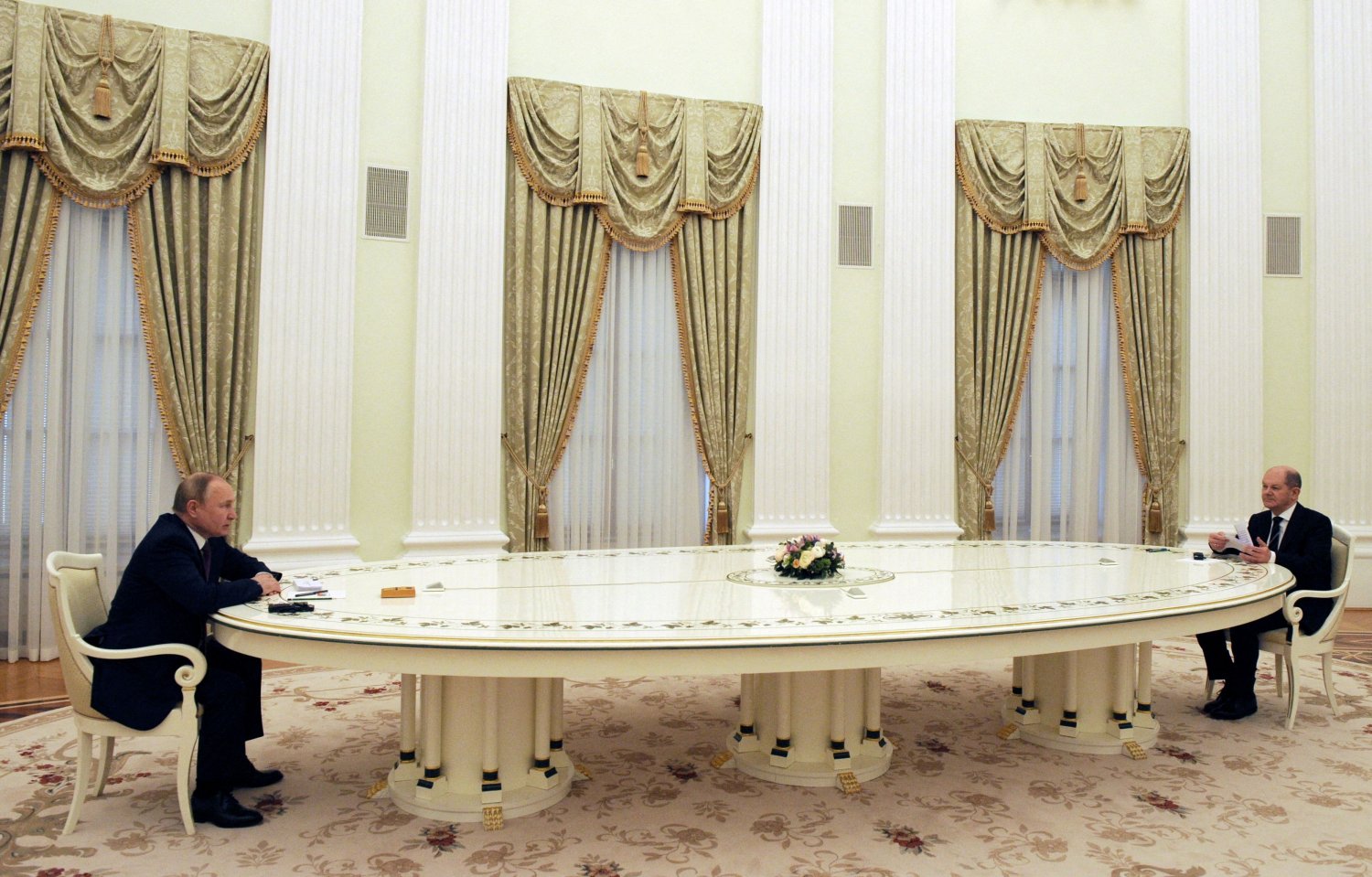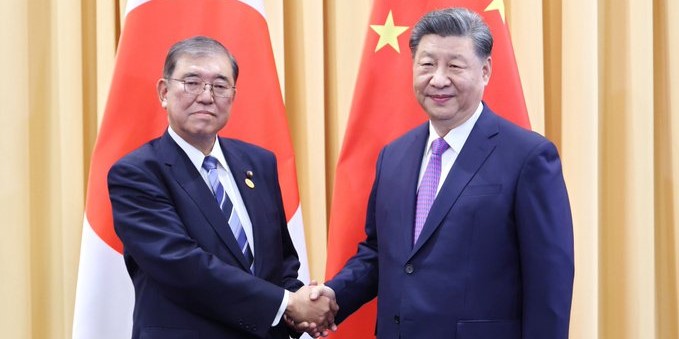Table of Contents
Russian President Vladimir Putin has told German Chancellor Olaf Scholz that his country is willing to consider energy deals if Berlin is interested, the Kremlin said, in their first phone conversation since December 2022.
In its statement, the Kremlin also said the two men had a “detailed and frank exchange of views” on Ukraine and that Putin laid out the same position he has stated for months: that any peace deal must cover Moscow’s security interests and to rely on the “new territorial realities” – a reference to the fact that Russian troops control a fifth of the country.
Putin also spoke of an “unprecedented deterioration” in relations between the two countries, which he blamed on Germany’s unfriendly actions, according to a Kremlin statement.
“It was emphasized that Russia always strictly fulfills its contractual and contractual obligations in the energy sector and is ready for mutually beneficial cooperation if the German side shows interest in it.”
Germany’s dependence on Russian gas
Germany was heavily dependent on Russian gas before the war, but direct shipments stopped when the Nord Stream pipelines blew up at the bottom of the Baltic Sea in 2022.
It is recalled that Germany and other European Union countries have imposed successive waves of sanctions on Russia because of the war and have taken steps to wean themselves off Russian oil and natural gas.
As for Ukraine, the Kremlin said in a statement that Putin’s stance was the same as he had indicated in June, when he said the war could end if Kiev abandoned its NATO ambitions and surrendered all four territories it claims Russia. Ukraine rejected these terms as tantamount to surrender.
“Potential agreements should take into account the interests of the Russian Federation in the field of security, start from the new territorial realities and, above all, eliminate the root causes of the conflict,” the Kremlin said in its statement.
Kremlin spokesman Dmitry Peskov, later referring to the phone conversation between the two leaders, said it showed deep disagreements over Ukraine, but the fact that they spoke was extremely positive.
“There were quite detailed discussions, first of all on the Ukrainian issue, frank discussions… But, of course, we cannot talk about some coincidence of views here.. there are quite deep disagreements, but the very fact of the dialogue is extremely positive.” Peskov told a Russian state television reporter.
Tusk satisfied with the placement of Soltz
At the same time, the Prime Minister of Poland today expressed his satisfaction that German Chancellor Olaf Scholz told Russian President Vladimir Putin, during a telephone conversation, that nothing can be decided on Ukraine without the participation of this country that has been defeated from the war.
“I received a phone call from Chancellor Soltz who informed me about his conversation with Vladimir Putin. I was glad to hear that the chancellor not only unequivocally condemned Russian aggression, but also reiterated the Polish position: nothing for Ukraine, without Ukraine,” wrote Donald Tusk on the X social network.
I have just received a call from Chancellor Scholz who gave me an account of his talk with V.Putin. I was satisfied to hear that he not only condemned the Russian aggression, but he also reiterated the Polish position: „Nothing about Ukraine without Ukraine”.
— Donald Tusk (@donaldtusk) November 15, 2024
Zelensky to Soltz: “Don’t talk to Putin”
Solz spoke to Ukrainian President Volodymyr Zelensky before his call with Putin and will brief the Ukrainian leader on the outcome afterward.
Zelensky warned Solz to avoid telephone communications with the Russian president, arguing that such talks would reduce the Kremlin’s international isolation and prolong the war.
According to a source from the Ukrainian president’s office, Zelensky stressed that any communication with the Russian leader sends the wrong message. “The president said this would only help Putin by reducing his isolation. Putin doesn’t want real peace, he wants a break,” the source told Reuters.
Germany is Ukraine’s biggest financial backer and biggest arms supplier after the United States, whose future support for Kiev looks uncertain after Donald Trump won the US presidential election.
Trump has repeatedly criticized the amount of Western economic and military aid to Ukraine and has suggested he can bring a quick end to the war, without explaining how.
Solz and Putin last spoke in December 2022, 10 months after Russia launched its full-scale invasion of Ukraine.
Scholz, the most unpopular German chancellor in history, is gearing up for national elections on February 23 in which his Social Democrats face stiff competition from left and far-right parties critical of Germany’s support for Ukraine.
#Ukraine #PutinSoltz #talks #peace #Zelenskys #reaction
What are the potential risks and rewards for Germany in negotiating energy deals with Russia, given the current geopolitical tensions?
Sure, here are some interview questions related to the topics covered in the article:
Thematic Section 1: Energy Deals Discussion
Guest 1: What does the potential for energy deals between Germany and Russia mean for Europe’s energy security, considering the ongoing conflict in Ukraine and the recent Nord Stream pipeline incidents? How can European countries ensure their energy independence moving forward?
Guest 2: How significant is it for Russia to express willingness for energy negotiations with Germany, given the current sanctions and political climate? Is this a sign of potential diplomatic thaw or simply a ploy to maintain economic leverage over Europe?
Thematic Section 2: Germany’s Dependence on Russian Gas
Guest 1: With Germany’s past dependence on Russian gas, how has the country managed to reduce its reliance on Russian energy supplies post-invasion? What challenges lie ahead in completely cutting ties with Russia in terms of energy cooperation?
Guest 2: Considering the economic benefits of continued energy relations with Russia, is it realistic for Europe to completely cut ties with Russia? How can European countries balance their energy needs with their support for Ukraine?
Thematic Section 3: Chancellor Scholz’s Stance on Ukraine
Guest 1: What messages does Scholz’s conversation with Putin send to Ukraine and its allies? How should Europe approach peace negotiations in light of Russia’s insistence on recognizing its annexed territories?
Guest 2: How might Scholz’s political opponents in Germany use his conversation with Putin as a point of criticism ahead of elections? Does this impact Germany’s stance on Ukraine and its future support for the country?
Thematic Section 4: Zelensky’s Reaction to Scholz-Putin Talks
Guest 1: Why did Zelensky oppose Scholz’s conversation with Putin? What does this mean for the potential for future peace negotiations and Ukrainian perspectives on a peace deal?
Guest 2: How do you assess Zelensky’s call for Western allies to avoid communication with Putin? Is this a sustainable strategy in the long term, and what are the potential ramifications for peace negotiations if such communication continues to be discouraged?


